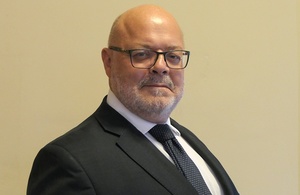COVID 19’s impact on connectivity and trade: UK statement
Mr Chair,
more trade is essential if the global economy is to overcome the unprecedented economic challenge posed by coronavirus. In a globalised world, trade will play an essential role in resolving the effects of this crisis, as well as returning people and business to normal.
Free trade is the foundation of global prosperity. It lowers prices, widens choice and encourages innovation. As a result of the coronavirus outbreak, countries across the world are either closing their borders or implementing restrictive measures. These barriers to trade endanger the movement of life-saving goods to those who need them most.
As my American colleague mentioned, there is a risk that, when facing such a testing time, there is a temptation for nations to revert to protectionist policies. History shows us the effects of such measures, including higher import prices, higher consumer prices, less competition in the economy, and a negative impact on innovation and research. In times of economic difficulty, it is more important than ever for countries to remain open to trade. In 2008 we avoided the protectionist mistakes made in the 1930s, and we must avoid them again.
Trade gives us security at home and opportunities abroad – opening new markets for business, bringing investment, better jobs, higher wages and lower prices just as we need them most. That is why the UK will use our voice as a newly independent trading nation to champion free trade, fight protectionism and remove barriers at every opportunity.
It is critical that, in balance with legitimate measures to minimise infection, we keep supply chains open as far as possible throughout this crisis. Global supply chains are already under pressure, with over 50 countries imposing bans or restrictions on the export of medicines and medical devices in response to the coronavirus pandemic. The UK is working with national governments to ensure supply chains remain open and businesses have access to the information they need to keep goods moving. Strong, concerted action will enable supply chains to continue to function. Abrupt changes to trading practices and centres of production will cost the world time that it currently does not have.
Mr Chair,
the UK Government believes new Free Trade Agreements will be an important factor in facing this economic challenge, providing new opportunities for businesses and entrepreneurs who have faced significant challenges during this difficult period. For example, a UK/US Free Trade Agreement will help galvanize trade and investment, can help create opportunities for businesses, provide better jobs, and boost the economy in every part of our country. Meetings on this so far have been positive and constructive, reflecting the mutual commitment to secure an ambitious agreement that significantly boosts trade and investment between the first and fifth largest economies in the world.
In the UK, we will do whatever it takes to support businesses to continue trading; through advice, finance and advocating to remove tariffs and barriers. Overseas, we are working to support vulnerable countries in navigating the changing trade landscape.
Mr Chair,
To conclude, our charge is clear: we must keep transport routes and transit hubs open, to support the flow of freight, aid, and medical supplies. But there is an urgent need for a coordinated fiscal, monetary and regulatory response among nations to reduce the global economic damage already being inflicted by the Covid-19 pandemic. By working with governments and international partners we can ensure that trade continues to flow, to keep global supply chains intact, and ensure that people have access to the critical goods – medical equipment, medicines, foodstuffs – that we all truly need.
Thank you.

